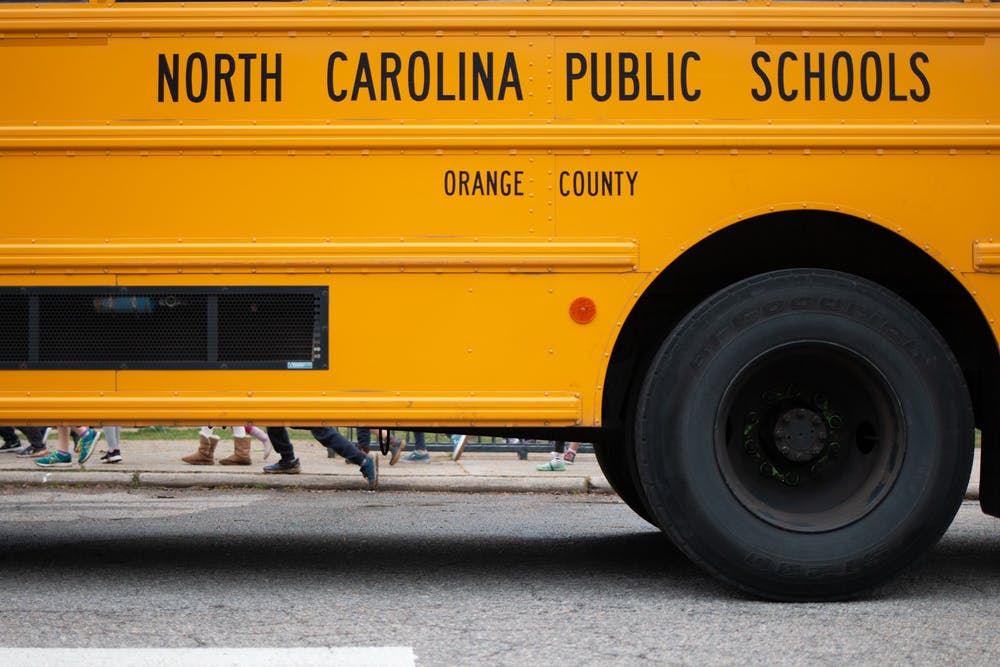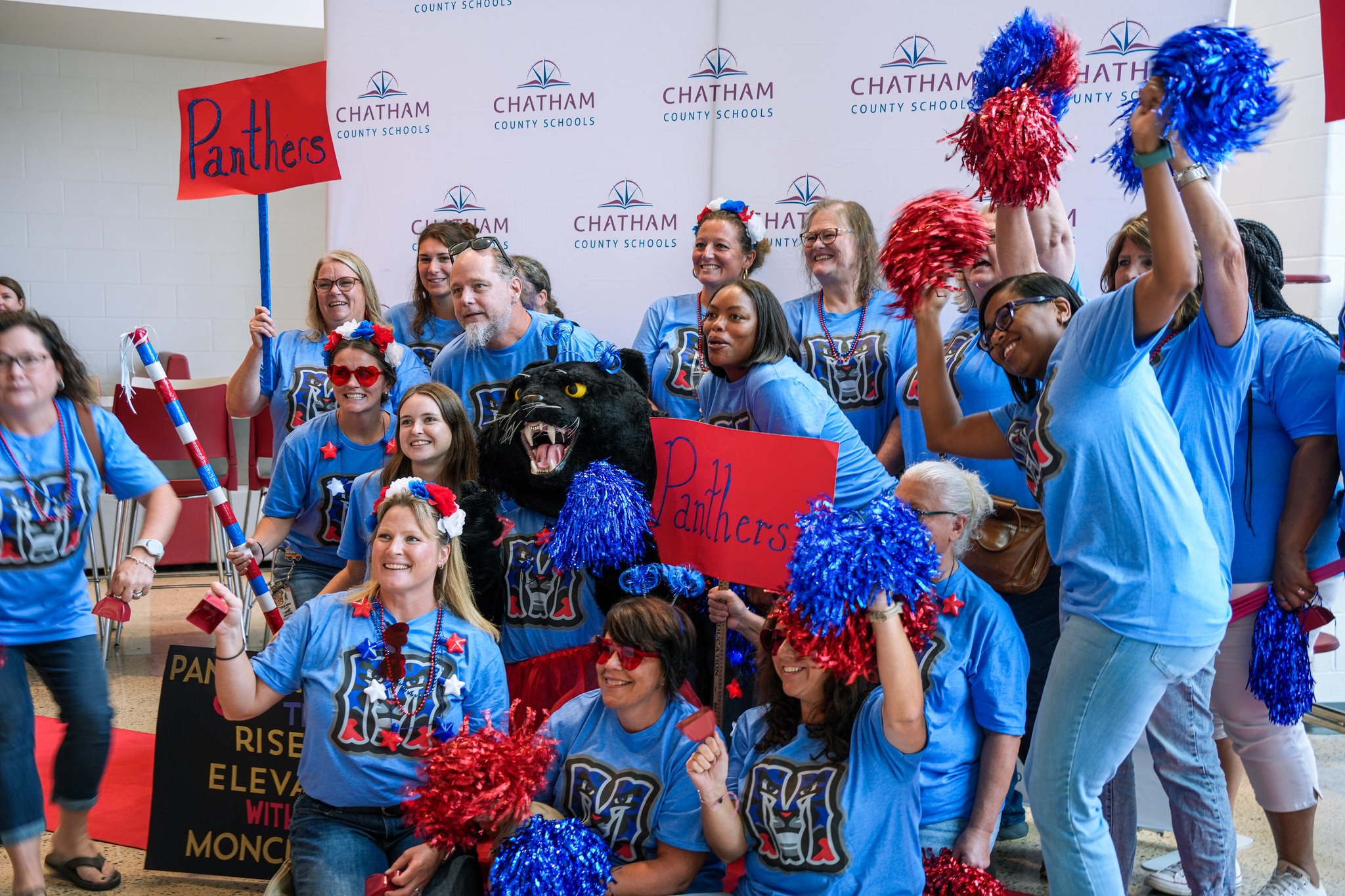The Orange County School board is scheduled to vote on a revision to the system’s dress code policy on Monday night aimed at curbing controversial clothing and symbols on school grounds.
The Hate Free Schools Coalition has been on a months-long campaign to ban the confederate flag from campuses of Orange County Schools.
After the group repeatedly requested the ban at school board meetings throughout 2017, the school board discussed various policies at a work session on May 31.
The school board heard from attorneys laying out the case law on what has been done in other situations across the country before discussing the options.
Chris Brook is the legal director of the American Civil Liberties Union of North Carolina, and he was one of the attorneys speaking to the school board.
“The Confederate flag has symbolic significance that many African-Americans and others consider offensive and for good reason,” Brook said. “The Confederate flag was flown by those who defended slavery and sought to dissolve the Union. That ideology was vanquished on the battlefield by the Civil War, but 150 years later its legacy has yet to be eliminated root-and-branch from American society.”
But Brook warned that any effort of a school system to censor student speech is effectively exercising government control over student expression.
Brook pointed to a school system in South Carolina that successfully banned the Confederate flag and clothing displaying the flag. But he said that group had also banned other “racially sensitive items” including Malcolm X t-shirts. Brook said the effort could be a slippery slope.
“I encourage you to consider how these principles you operate from and the practice you adopt will be used by other governmental officials with different experiences, worldviews and ideologies.”
April Dawson, an assistant professor of law at North Carolina Central University, said courts had previously given school officials authority to limit expression in ways that could not possibly be limited in a private setting.
“In determining when school officials can limit student speech without offending the first amendment,” Dawson said, “the Supreme Court has given school officials a lot of deference, a lot of latitude.”
Dawson added allowing symbols that make some students feel unsafe, including the Confederate flag, to be displayed on school grounds arguably runs counter to the school’s mission and educational goals.
NCCU law professor Irving Joyner commended the school board on taking up the discussion. But he encouraged the board to take action, saying that the meaning of the flag “survived” the Civil War.
“The Confederate flag tells a sordid and repulsive history,” Joyner said. “Whenever the flag is used, it is designed to present an image of fear, terror, racial supremacy and physical opposition to the rights of African-Americans, racial minorities and other groups.”
UNC law professor Mary-Rose Papandrea advised the board against thinking passing any policy would be the end of this discussion.
“This area is a bit of a hot mess,” Papandrea said. “So, it’s not a surprise you’re hearing different things from different experts. In the end, I hope my comments will help you navigate the threats of future litigation. Because I can assure you that any policy you pass that does ban offensive speech or Confederate shirts will end up in litigation.”
Rather than focusing on any perceived message given off by the flag as a reason for a potential ban, Papandrea said courts would likely have more favor if specific instances of racial tensions at the schools or in the area were pointed to as causing the change.
Orange County Schools Superintendent Dr. Todd Wirt said that at a recent meeting with a diverse group of students and faculty a majority of students said they had seen bullying and that teachers pointed more toward the political climate and political topics as being the cause of disturbances rather than the Confederate flag, specifically.
A policy was proposed by the school system attorney at that work session to serve as a starting point. Board chair Dr. Stephen Halkiotis said he felt this was a step in the right direction but added that school administrators – principals, in particular – would need training on how to handle any instances once a policy was adopted.
“And the fact of the matter is we’re putting in here ‘indecent, profane or racially intimidating.’ That is much stronger that anything we’ve got right now, and I think that’s a positive step forward in making this thing work – if we get all of our administrators adequate and meaningful training that I would expect the school board attorney and the superintendent to be involved with.”
The proposed policy says, “Students are not to wear clothing, buttons, patches, jewelry or any other item with words, phrases, symbols, pictures or signs that are indecent, profane, or racially intimidating that creates a reasonable forecast of disruption.”
There was some concern about the subjectivity of that proposal, which was sent back to the attorney with direction to continue working on the language.
A vote on the new policy proposal is on the agenda for Monday night’s school board meeting, which is set for seven o’clock in the auditorium at AL Stanback Middle School.






